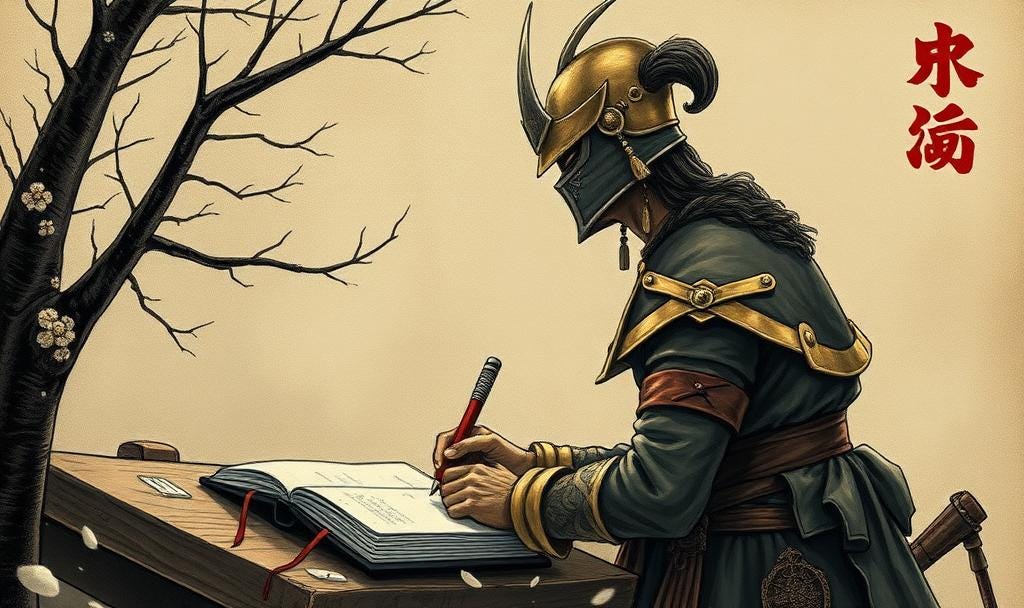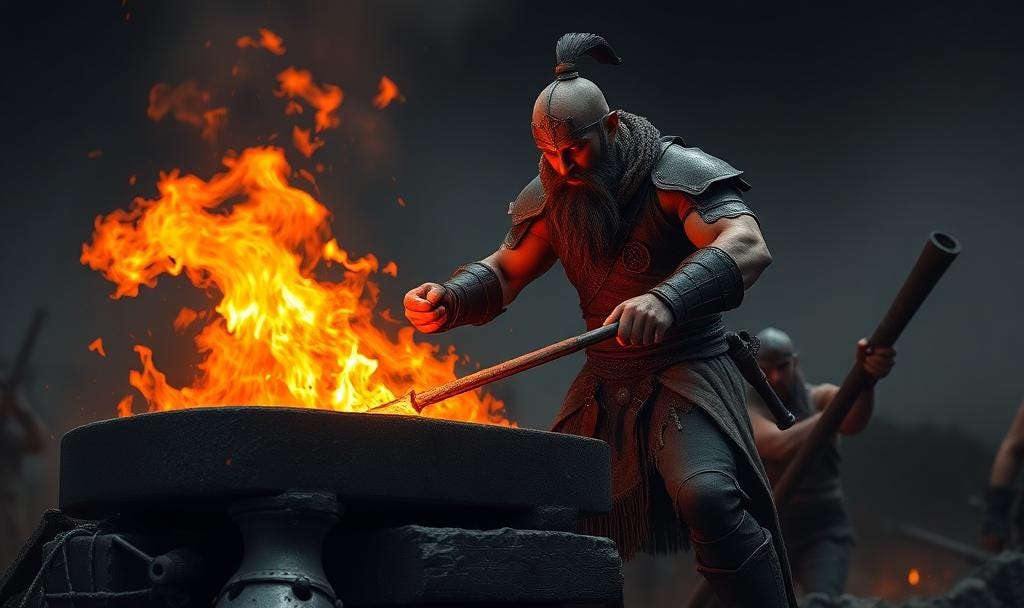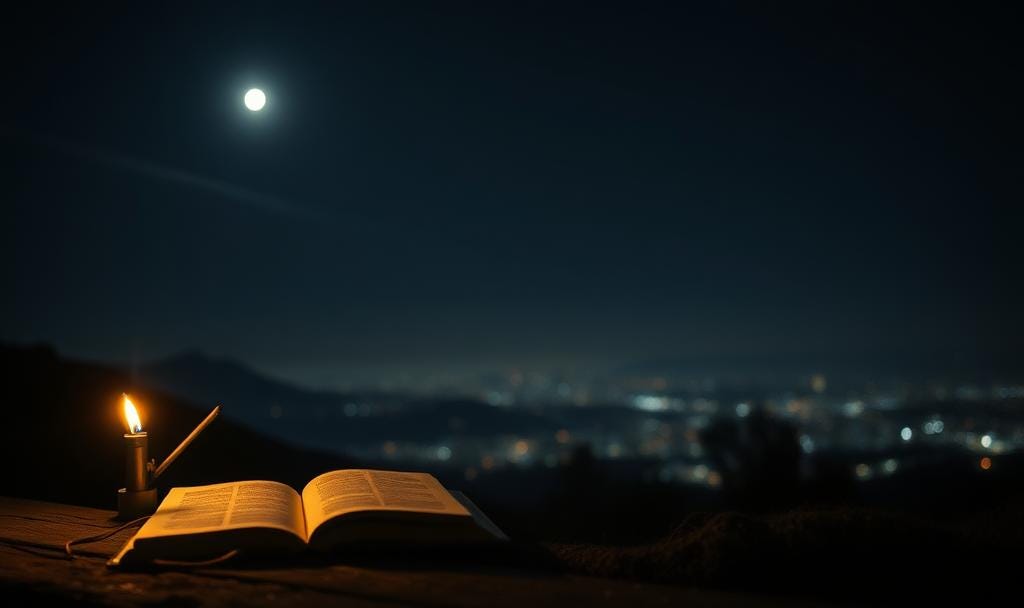Silence does not welcome you with comfort. It greets you with weight.
The first time I tried to sit still, even for five minutes, it felt like standing before a forge without fire. Nothing moved, nothing filled the space. Just me, and the raw echo of my own thoughts.
I had avoided this for years. I thought work would save me. I buried myself in sparks and noise, convinced that enough steel, enough sweat, enough hours would build the bridge inside me. But when the shift ended and the machines went quiet, I still felt the same hollow space. Silence was the one place I feared most. And exactly for that reason, it became the only path.
Musashi wrote in The Book of Five Rings: “You must understand that there is more than one path to the top of the mountain.”
For me, silence became that hidden path. No sword in hand, no opponent in front of me. Just the duel with myself.
The fight inside silence
The first minutes are the hardest. Your body wants to move, your hand wants to grab the phone, your mind screams for distraction. But if you stay, something begins to change. The noise that once drove you begins to surface. You see it, the unfinished conversations, the doubts, the anger, the strange sparks of memory.
For me, it was often pictures and old films from childhood. Not just the painful ones, even the good ones. But I saw that those are only memories, not silence. To swim endlessly through past feelings leaves no space for the new. In time I learned that silence is not about wanting or creating. It is about asking what I truly need, and giving life the space to answer.
I learned that silence is not empty. It is full of everything I tried to avoid. And when I stopped running, I could finally look at it. Not solve it. Just face it.
Journaling as a mirror
Modern science confirms what old warriors and sages already knew. Writing down your thoughts after silence has measurable effects: lower anxiety, better focus, even faster healing. But more than research, I felt it myself. When I began journaling, I held a mirror. The page did not lie. It showed me patterns, repetitions, the questions that haunted me.
The hardest part is sometimes looking at what the mirror shows. There are days I cannot even name the most brutal truth I see in myself. Yet I still write. Even when I am at the bottom. Especially then. I put the time and date, and I write exactly why I feel broken. Later, when better days come, I can return to those words and see how far I’ve walked since that moment. That is why journaling is not a game. It is a weapon.
Manly P. Hall called this self-unfoldment: the discipline of watching your own mind. It sounds simple, but it is the beginning of all transformation. Without this step, no training, no philosophy, no strategy has roots.
Silence as a forge
When steel is placed in fire, it resists, bends, takes form. Silence does the same with the soul. At first it feels like punishment. But each time you return, you learn that the weight is not here to crush you, but to shape you.
Habit, as Charles Duhigg showed, is nothing more than a loop. Cue, routine, reward. If your cue is silence, and your routine is journaling, the reward will be clarity. Not at once, not every day. But slowly, the fog thins.
Taoist texts speak of wu wei, doing without forcing. Sitting in silence is exactly that. You do nothing, yet something moves. Not in the world, but in you.
Your step
I began with five minutes. Some days it felt like hours. Some days it broke me. But I returned. And after weeks, something unexpected came. A kind of stillness. Not absence, but presence.
Now silence feels like holding my own soul in my hands. Or not holding it at all, but letting it float around me. I no longer demand anything from it. I simply prepare myself for the next step. That is the gift of silence. Not chasing ego, but creating space for what is real!
So I ask you:
When was the last time you sat without movement, without distraction?
What questions rise when you give them space?
Do you trust yourself enough to write them down, even if they make no sense?
This is the first step. Not a grand promise. Just five minutes of silence each day.
No phone. No music. No escape.
When the silence grows heavy, know this: you have reached the threshold.
“When you stop chasing what you want, silence shows you what you truly need.”-ThySilentPath
Why journaling matters:
Studies show that putting thoughts on paper can ease mental distress and even improve physical well-being. A meta-analysis found journaling reduced anxiety by about 9%, PTSD symptoms by 6%, and depression by 2% PMC. Other research showed expressive writing reduced depression scores by around 30% over eight weeks, and journaling as effective as cognitive-behavioral therapy for reducing depression risk reflection.app. Even short sessions just 15 minutes a day can meaningfully lower stress and anxiety Call To Mind.
This isn’t fluff. It’s quiet alchemy. Words become tools, carrying the weight off your chest.
Take silence. Take the journal. Take the first step.






